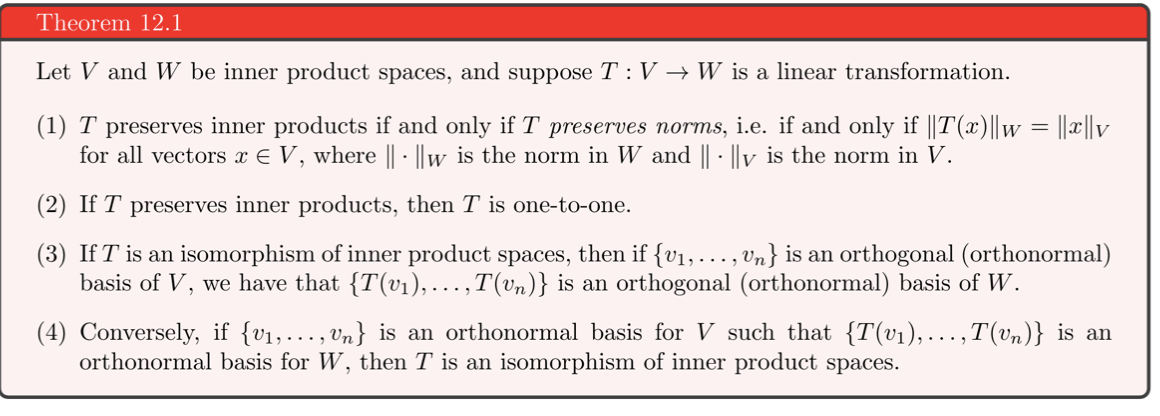I want to solve this question by first proving that it preserves inner products and then showing it's onto. Now since we know it preserves inner products by the theorem we know it's one to one, so if we also show it's onto, we can prove it's an isomorphism of inner product spaces. Could you please try to help me prove how it's onto and how it preserves inner products?

Extracted text: (b) Suppose V is a finite-dimensional inner product space with F = R, and suppose T : V → V is a linear transformation such that V has an orthonormal basis {v1, v2, ..., Vn} of eigenvectors of T. Furthermore, assume that all eigenvalues of T come from the set {–1,1}. Prove that T is an isomorphism of inner product spaces.

Extracted text: Theorem 12.1 Let V and W be inner product spaces, and suppose T: V → W is a linear transformation. (1) T preserves inner products if and only if T preserves norms, i.e. if and only if ||T(x)||w = ||x||v for all vectors x E V, where || · ||w is the norm in W and || · ||v is the norm in V. (2) If T preserves inner products, then T is one-to-one. (3) If T is an isomorphism of inner product spaces, then if {v1, ..., Vn} is an orthogonal (orthonormal) basis of V, we have that {T(v1), ...,T(vn)} is an orthogonal (orthonormal) basis of W. (4) Conversely, if {v1,..., Vn} is an orthonormal basis for V such that {T(v1),...,T(vn)} is an orthonormal basis for W, then T is an isomorphism of inner product spaces.